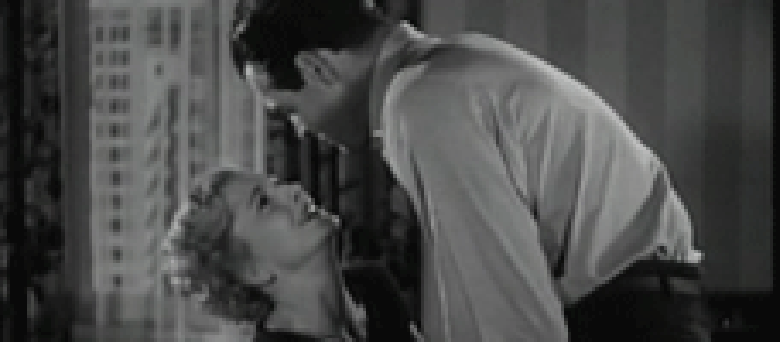Reviews
Nicholas Ray
USA, 1950
Credits
Review by Jenny Jediny
Posted on 22 August 2008
Source TCM broadcast
Categories The Mystic: The Films of Nicholas Ray
Born to Be Bad poses the question of how much a director can shape a film, in his or her own style, under studio pressure and supervision. Although repeatedly categorized as a noir, Nicholas Ray’s third film released through RKO is more glossed cattiness than it is a tough-as-nails thriller, and doesn’t immediately evoke Ray’s signature upon an initial viewing. Generally, Born to Be Bad has not been credited as a particularly noteworthy effort from Ray, except for the performance of actress Joan Fontaine as the femme fatale, a casting decision that was not even made by the director. However, Born to Be Bad is quite absorbing and entertaining as a mixture of noir and melodrama, the latter genre proving essential throughout nearly Ray’s entire body of work.
Compared to other noirs featuring manipulative women at the helm - such notables as Ann Blyth, the ruthless daughter in Mildred Pierce or Barbara Stanwyck seducing Fred MacMurray to his demise in Double Indemnity - Joan Fontaine is the last actress I imagine cast as a femme fatale during the height of the studio era. I don’t believe an actress (with acknowledged talent) has ever irked me as much as Fontaine; I sympathized with her portrayal of a love struck, nervous newlywed in Hitchcock’s Rebecca; grew slightly irritated with her reluctance to accuse husband Cary Grant of foul intentions in Suspicion; and was entirely aggravated with her role in Opüls’ Letter from an Unknown Woman, definitive portrayal of a woman as a doormat. Admittedly, Fontaine excels at the role of the unnerved, mousey female, hence her continual typecasting, and her surprising turn here as a greedy tart; reportedly, Fontaine was not the first choice for the role of Christabel, but actress Barbara Bel Geddes, replaced by then RKO head Howard Hughes, who decided Fontaine had more box office potential.(It probably didn’t hurt matters that she was Hughes’ former lover.)
As social climber Christabel Caine, Joan Fontaine pleasantly claws her way to fortune in high society San Francisco. “Pleasantly,” because Christabel deceives with a mask of sweetness that perhaps only Fontaine could have pulled off, with her breathy voice and darting eyes, proving what an unintentionally clever move was made in casting Fontaine as a scheming gold digger. Christabel’s first appearance in the film is an obvious signal as to just how abruptly she’ll interrupt the lives of those around her, as she not only attempts to crash an opening night party, but also manages to literally trip up the lady of the house; placing a suitcase in the middle of a hallway, she leaves unsuspecting Donna Foster flat on her face. Christabel plants herself in Donna’s life all too easily, invited in as a houseguest courtesy of her uncle, Donna’s boss. Charming both Donna and her wealthy fiancé Curtis (portrayed by Zachary Scott, memorable as Mildred Pierce’s affluent, but not so devoted lover), Christabel also attracts the attention of their friend, bad boy novelist Nick Bradley. While it quickly becomes clear that Christabel intends to break up Donna’s engagement to Curtis, the scenes between Christabel and Nick have real potency, and are far more fun to watch for their overheated scenes of lust, as Nick is the only character to not only acknowledge but also accept his lover’s darker side.
It’s intriguing that the film stresses that Christabel is indeed a woman who was Born to Be Bad, pointedly noting her status as an orphan now weaseling her way to the top—perhaps the crowning touch to her coldness is Christabel’s calculated moves to not only push her frail aunt (and former guardian) out of her life (and acquired mansion), but her casual dismissal of her relative’s subsequent death. While Christabel’s actions won’t go unpunished, her eventual downfall seems to be a product of studio convention, rather than Ray’s directorial view on the whole affair. Christabel does not elicit sympathy as a character, but neither do her rather gullible “victims;” Christabel is far more intelligent and certainly more resourceful than anyone else in the film, with the exception of Nick. As the two “outsiders” among established society - the most solid connection here to Ray’s thematic interests - Ray injects energy into this pairing, fleshing out their characters and portraying them as evenly matched competitors, although Nick will eventually draw the line at adultery (although the idea seems to hurt his pride more than his moral compass). Christabel, however, wants it all, and desires power most—when she’s finally married Curtis, it’s clear she derives pure pleasure not only from her new position in society (which involves kindly condescending to the annual gala committee) but also in withholding sex from Curtis, who realizes too late why his new bride is perpetually busy.
At times, Born to Be Bad almost resembles a Sirkian drama in how it amplifies domestic drama and concentrates on female ambition; while Ray’s technique is far more restrained than Sirk’s, there’s something about Christabel that echoes Lana Turner’s Lora in Imitation of Life, climbing her way “up and up and up” with nobody to pull her down. Although Christabel’s careful plotting eventually comes undone, there is an unquestionable impression by the film’s final scenes that she’ll somehow manage to find her way back to the top.
More The Mystic: The Films of Nicholas Ray
-
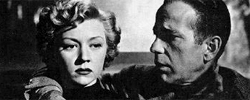
In A Lonely Place
1950 -
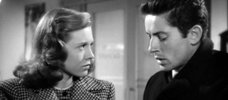
They Live By Night
1948 -
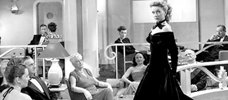
A Woman’s Secret
1949 -
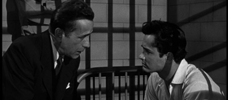
Knock on Any Door
1949 -

Born to Be Bad
1950 -
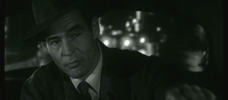
On Dangerous Ground
1952 -
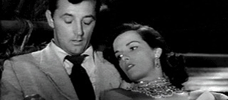
Macao
1952 -
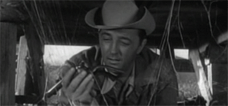
The Lusty Men
1952 -
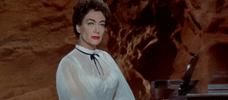
Johnny Guitar
1954 -
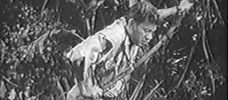
High Green Wall
1954 -
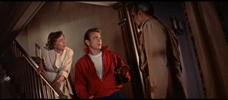
Rebel Without a Cause
1955 -
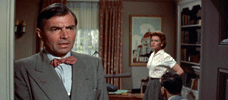
Bigger Than Life
1956 -
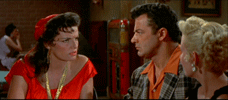
Hot Blood
1956 -

The True Story of Jesse James
1957 -
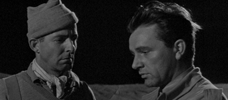
Bitter Victory
1957 -
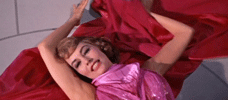
Party Girl
1958 -

King of Kings
1961 -

55 Days at Peking
1963 -
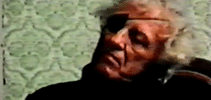
The Janitor
1974 -
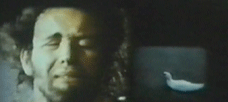
We Can’t Go Home Again
1973-1976 -
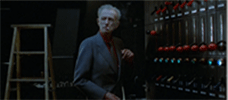
Lightning Over Water
1980
We don’t do comments anymore, but you may contact us here or find us on Twitter or Facebook.



